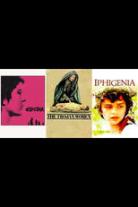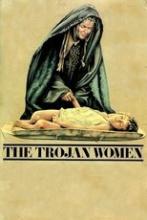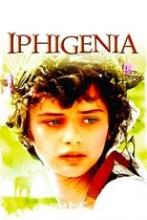
Greek Tragedy Trilogy
These films explore the aftermath of the Trojan War, focusing on the personal tragedies experienced by royalty. The first two films tackle societal expectations, war's implications, and political corruption, highlighting battle horrors and the survivors' plight. The final film, Agamemnon, depicts the Greek army's return and Agamemnon's tragic murder by his brother, concluding the epic tale. The trilogy weaves these events to showcase war's lasting impact and the pain of political gamesmanship. It portrays raw emotions, betrayal, and the spirit of the oppressed, offering a multifaceted exploration of humanity at its most vulnerable and triumphant.
Electra (1962)
25 May, 1962
Living in exile after the death of their father, the grown children of a murdered and usurped king converge to exact eye-for-an-eye revenge.
The Trojan Women (1971)
01 May, 1971
In the aftermath of the Trojan Wars, Queen Hecuba takes stock of the defeated kingdom. Her son has been killed, and his widow, Andromache, is left to raise their son, Astyanax, alone. Hecuba's daughter, Cassandra, fears being enslaved by her Greek masters, while Helen of Troy risks being executed. Astyanax also becomes the focus of the Greeks' attention as the last male heir of the Trojan royal family.
Iphigenia (1977)
10 September, 1977
The Greek army is about to set sail to a great battle, but the winds refuse to blow. Their leader, King Agamemnon, seeks to provide better food, but accidentally slays a sacred deer. His punishment from the gods, the sacrifice of his daughter Iphigenia.



